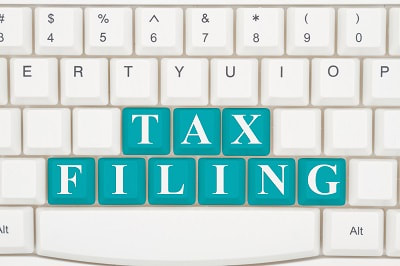President Trump’s campaign promise of tax reform was eventually signed into law as the Tax Jobs and Cuts Act on December 22nd 2017. Some of the changes the Act contains have been well publicized, such as the so called Apple Tax, and lower tax rates. For many, the changes mean planning ahead and making changes now to ensure that they don’t pay more tax than necessary for tax year 2018.
American expats, of whom there are over 9 million, find themselves in the unfortunate position of having to continue filing US taxes on their worldwide income despite living outside the US. Many expats have additional US filing requirements too, such as account and asset reporting under FBAR and FATCA.
Last week, the IRS finally announced the final tax rates, standard deductions, and exemptions for 2018 following the Tax Reform, so we are now in position to definitively look at what they mean for American expats.
Standard Deduction/Personal Exemption
The Personal Exemption has been scrapped entirely, while the Standard Deduction has been raised to compensate.
The new Standard Deduction for Single taxpayers and those Married but Filing Separately is now $12,000, and $24,000 for Married Couples Filing Jointly and Surviving Spouses.
This means that American expats who earn less than the Standard Deduction aren’t required to file a US tax return. The exception is self-employed expats, who are still required to file if they earn over $400, as they owe self-employment taxes.
New Tax Rates and Brackets
In the final Tax Reform Act, there are still 7 tax brackets, however the vast majority of tax payers will owe less tax. Here are the 2018 rates for single tax payers:
Income: Tax Due:
“These changes are due to the Tax Jobs and Cuts Act of 2017, signed into law by President Trump on December 22, 2017.” – Forbes
0 – $9,525 10% of the taxable income
$9,525 – $38,700 $952.50 plus 12% of the excess over $9,525
$38,700 – $82,500 $4,453.50 plus 22% of the excess over $38,700
$82,500 -$157,500 $14,089.50 plus 24% of the excess over $82,500
$157,500 – $200,000 $32,089.50 plus 32% of the excess over $157,500
$200,000 – $300,000 $45,689.50 plus 35% of the excess over $200,000
Over $300,000 $80,689.50 plus 37% of the excess over $300,000
The tables for Married Couples and Head of Households can be found here.
Exemptions for expats
When expats file their US tax return, they are allowed to claim one or more exemptions to reduce the US tax they pay. In most cases this will remove them from US tax liability completely.
The Foreign Tax Credit allows expats to claim a $1 US tax credit for every dollar equivalent of tax that they’ve already paid abroad. This exemption allows American expats who pay tax abroad not to pay US tax on the same income. However, the new lower US tax rates mean that expats who pay tax abroad at a higher rate than the US tax rate will now have extra excess US tax credits, which they can carry forward for future use.
The other major exemption for American expats is the Foreign Earned Income Exclusion. This exemption also remains in place following the Tax Reform, and in 2018 expats will be able to exclude $103,900 of income that they’ve earned while living abroad (up from $102,100 in 2017) from US taxation, whether they pay foreign tax on this income or not.
The final 2018 figure is slightly lower than the provisional figure that was published in December. Expats can claim the Foreign Earned Income Exclusion by filing form 2555 when they file their annual federal tax return.
Expats with children will also be glad to hear that the Child Tax Credit (and Additional Child Tax Credit) has been raised to $2,000 per child.
Foreign corporations
The ‘Apple Tax’ also affects all expats with a foreign registered business, as they can no longer defer paying US tax on their foreign corporate profits. We recommend that expats with a business registered abroad talk to an expat tax specialist as soon as possible to ensure that they remain as tax efficient as possible going forward.
Catching up
The Streamlined Procedure amnesty program that allows expats who are behind with their US tax filing to catch up (including claiming exemptions) without facing penalties has also been extended, and we strongly recommend that expats who are behind with their US tax and FBAR filing contact an expat tax specialist to find out more about the program before the IRS writes to them (at which time they may be liable to pay back taxes, interest and fines).

 Connect on LinkedIn
Connect on LinkedIn

